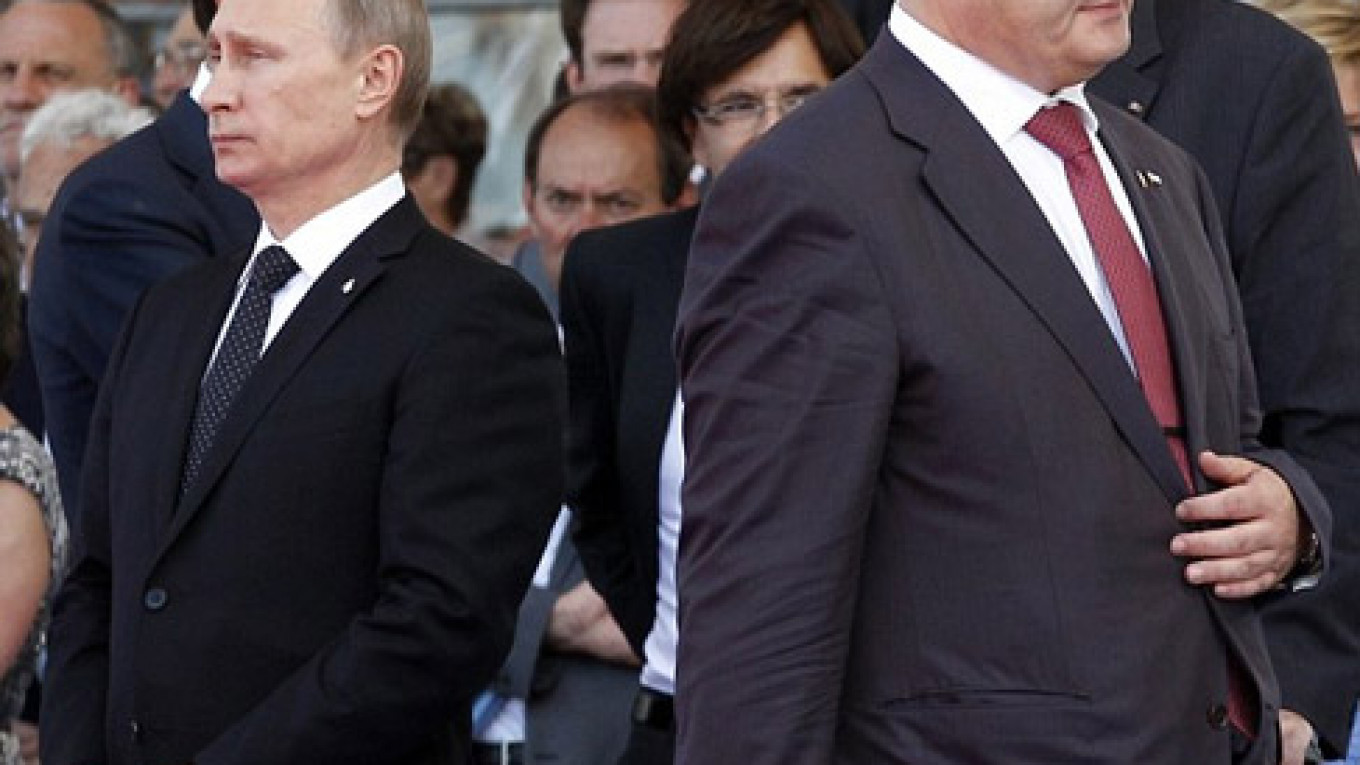As President Vladimir Putin and his Ukrainian counterpart, Petro Poroshenko, prepare for their face-to-face meeting in Milan later this week, their hopes for a lasting peace settlement for Ukraine and Western sanction relief for Russia hinge on Paragraph 4 of the Minsk Protocol, signed in the Belarussian capital on Sept. 5.
It mandates that Ukraine restore its control over the border with Russia and that a 20-mile demilitarized zone be established and monitored by the OSCE.
If the agreement is fully implemented, it will stop the flow of Russian weapons, fighters and supplies to the separatists in the east, while keeping Russian artillery out of range. This would effectively neuter the "people's republics" in Donetsk and Luhansk as separate entities and turn them into "special status areas" under full Ukrainian sovereignty, ending the conflict and depriving Russia of veto power over Ukraine's future.
If not implemented, the conflict will remain frozen, Ukraine's sovereignty will remain truncated, and a new war will be inevitable.
Germany and the U.S. have conditioned any sanction relief for Russia with the full implementation of the Minsk Protocol. German Chancellor Angela Merkel has expressed concern that there is still "no protection of the border, no control, no buffer zones. All of these things are the minimum conditions for us to be able to consider revoking sanctions."
U.S. Deputy National Security Adviser Tony Blinken and Assistant Secretary of State Victoria Nuland explicitly stated that the border had to be firmly under the Ukrainian government's control for any talks on sanction relief to start.
Sealing the border means that Russia would effectively throw the separatists under the bus. But it would probably end the most onerous sanctions — restrictions on raising long-term capital for Russian banks and oil companies, as well as technology transfer to the Russian oil sector — that threaten Russia's finances.
Putin will quietly walk away from Novorossia to avoid trouble at home, allowing the border to return to Kiev's control. The FSB is already preventing volunteers from crossing into Ukraine.
Secret talks with Poroshenko on the postwar transition have been channeled through Putin's aide Vladislav Surkov, completely bypassing the regular interagency process. On Friday, Poroshenko indicated that he was optimistic about the talks in Milan.
Hopefully, this will end the inglorious war no one could have imagined a year ago.
Vladimir Frolov is president of LEFF Group, a government relations and PR company.
A Message from The Moscow Times:
Dear readers,
We are facing unprecedented challenges. Russia's Prosecutor General's Office has designated The Moscow Times as an "undesirable" organization, criminalizing our work and putting our staff at risk of prosecution. This follows our earlier unjust labeling as a "foreign agent."
These actions are direct attempts to silence independent journalism in Russia. The authorities claim our work "discredits the decisions of the Russian leadership." We see things differently: we strive to provide accurate, unbiased reporting on Russia.
We, the journalists of The Moscow Times, refuse to be silenced. But to continue our work, we need your help.
Your support, no matter how small, makes a world of difference. If you can, please support us monthly starting from just $2. It's quick to set up, and every contribution makes a significant impact.
By supporting The Moscow Times, you're defending open, independent journalism in the face of repression. Thank you for standing with us.
Remind me later.








